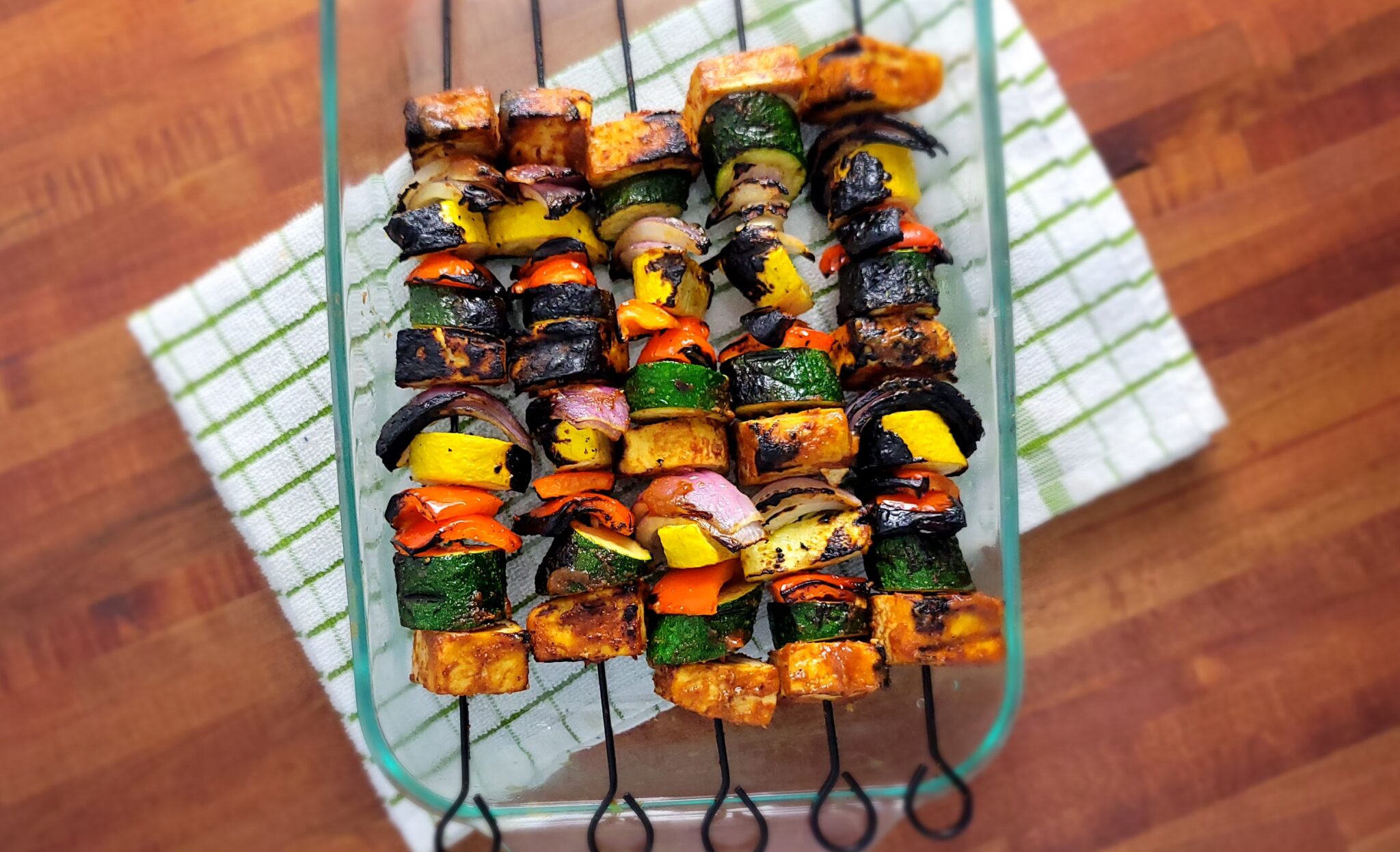Adding snacks to your day is a great way to keep you energized and complete and help you improve your nutrition. When you think about snacks, the foods that may come to mind are likely packaged foods like chips, crackers, cookies, or granola bars which are often high in sodium.
If you have chronic kidney disease (CKD), your doctor or dietitian may have told you to reduce your sodium intake. So you may be wondering what type of snacks are best for you. This article will learn more about plant-based snacks that support your kidney health.
Table of Contents
Introduction
In all stages of CKD, it is okay to eat snacks, but you will have to practice some awareness of your food choices to manage how much sodium you eat.
Choosing low sodium snacks doesn’t have to be restricting or unsatisfying. You may be surprised to know that you have a variety of food choices that are still flavorful and support your kidney health.
An easy way to reduce sodium in your diet is to choose fruits and vegetables as your snack choice. Fruits and vegetables are naturally low in sodium, making them a quick snack option for people with CKD.
What about packaged foods? The demand for low sodium foods has grown. When you go to your grocery store, you may start noticing more low sodium options of your favorite food products. Use food labels to find low sodium options to plan your snacks.
Check out our guide if you need help reading a food label. Ask your doctor or dietitian what your daily sodium recommendation is.
Let’s dive into some of our favorite snacks packed with flavor and less salt!
Popcorn
While the most popular topping for popcorn is a lot of butter and salt, you can use many topping combinations to make a sweet, savory, or spicy snack without salt. Popcorn is a light and crunchy snack low in calories for a more significant portion.
Cooking popcorn from scratch is easy since all you’re doing is popping natural kernels. Then you simply choose your salt-free toppings to add the flavor of your choice.
Follow These Steps to Make Popcorn At Home :
- Add 1 Tbsp of olive oil into a Stand-Up Mid Sized Stasher Bag
- Then add in ½ cup of popcorn kernels
- Shake the bag, so the kernels are coated with olive oil
- Close the Stasher Bag leaving a small 1 inch opening at the end
- Put your Stasher bag in the microwave until the popping starts to slow. Usually 2.5-3 minutes.
- Carefully take your bag out of the microwave, then open it. The bag will be hot!
- Pour the popcorn into a large bowl and toss with your desired toppings!
Add flavor to your popcorn without salt
- Make it sweet: Sprinkle with cinnamon and sugar or drizzle some honey and unsalted butter
- Make it savory: Toss with garlic powder and parmesan cheese or nutritional yeast, cumin, and garlic
- Make it spicy: Mix with olive oil, chili powder, and black pepper
- Make it tangy: Top with fresh lime and chili powder
*Don’t have a stasher bag; you can quickly heat popcorn in a pot with olive oil on the stove. Follow the directions on the popcorn kernel food label.
Pretzels
Pretzels are a commonly found food in grocery stores and smaller convenience stores when you’re on the go, making it a great option to keep in mind. You may be used to seeing salted pretzels high in sodium, but have you noticed that unsalted version? There are unsalted pretzel options that are a good fit for your kidney diet.
We recommend Snyder’s of Hanover – Unsalted Mini Pretzels. Look for them in your local grocery store to try as an easy go-to snack.
Pair Your Pretzels With One of These
- Hummus
- Your favorite nut butter
- Chocolate
- A low potassium fruit like grapes
Corn Tortilla Chips
Potato chips are one of the most common snack foods in America, and there’s usually a whole aisle at the grocery store dedicated to chips alone! You may have thought that you can no longer eat chips since potato chips are not recommended with CKD for their high potassium content. However, corn tortilla chips are a great alternative appropriate for your kidney diet.
Corn tortilla chips are considered kidney-friendly because they are much lower in potassium than potato chips. Look for salt-free or low sodium corn tortilla chips. Plus, salt-free food products have become more readily available, so finding chips that fit into your kidney diet is easier now.
Enjoy Your Chips With These Dips
- Red pepper sauce
- Hummus
- Low sodium tzatziki sauce
Crackers
There are usually crackers right across from the chip aisle in your grocery store. There are a variety of crackers for you to choose from, keeping in mind the low-sodium or unsalted versions. Crackers are the perfect portable snack, and just pack in a compartment container to pack foods separately and take them with you. When you’re hungry, assemble and enjoy wherever you go. Below are some of the most popular options:
- Sweet: Graham crackers
- Plain: Unsalted saltine crackers
- Savory: Low sodium Wheat Thins
- Buttery: Hint of Salt Ritz crackers
- Slightly Sweet: Animal crackers
Crackers are perfect for pairing with fruit, veggies, dips, or spreads to create a sweet or savory snack for your kidney diet. The combinations are endless!
Try Your Crackers With One Of These
- Berries
- 1 tbsp of unsalted nut butter
- Hummus
- Apples and cinnamon
- Strawberry jam
Rice Cakes
You may think of rice cakes as bland, and however, with the right toppings, you can make a kidney-friendly tasty snack. Rice cakes are simply puffed rice formed into patties and are naturally low in sodium and calories. In your grocery store, you may have seen the most popular brand of rice cakes is Quaker, which comes in various sweet and savory flavors.
The good news is that the flavored Quaker Rice Cakes are low in sodium. You have so many options to create snack combinations with a rice cake base. Here are some combinations that we recommend you try:
Make It Sweet
- Plain rice cake with unsalted peanut butter with mashed raspberries
- Chocolate rice cake with sliced strawberries and a drizzle of honey
- Plain rice cake with unsalted peanut butter and chocolate chips
Make It Savory
- Plain rice cake with hummus and a few sliced cucumbers
- Plain rice cake with non-dairy cream cheese, sliced cucumbers, dill, and a squeeze of lemon
- Try one of the flavored rice cakes alone! Sometimes simple is better.
Fruit
As mentioned earlier, fruits are a great low sodium option for people with CKD, and eating fruit regularly is recommended for everyone to promote good health. With CKD, some people need to limit certain fruits due to their high potassium content, but there are many low potassium fruits that you can still enjoy.
Some kidney-friendly fruits we recommend are apples, plums, berries, and grapes. These fruits contain polyphenols, which research has shown protect against cardiovascular disease and type 2 diabetes. [1] Fruits are also high in fiber, which can help with constipation and reduce cholesterol.
With its natural sugar, reaching for a piece of fruit when your sweet tooth kicks in is an obvious choice!
Try These Fruit Combinations Below
- A sliced apple drizzled with some honey and topped with granola or mini chocolate chips!
- ½ cup of berries with a handful of nuts
- A sliced plum with oatmeal sprinkled with cinnamon
Vegetables
Like fruits, vegetables are also low in sodium and recommended for everyone, including people with CKD. Research has shown that only 1 in 10 Americans get enough vegetables in their diets. [2] Vegetables are okay for your kidneys; adding them as a snack is easy to improve your health. If you are on a potassium restriction, many low potassium vegetable choices are available.
Vegetables that make great snacks are carrots, celery, sugar snap peas, cucumber, and bell peppers. Vegetables are a great source of vitamins and minerals, fiber and phytochemicals like antioxidants that can help with kidney disease. Antioxidants help neutralize normal but harmful molecules in your body called free radicals. Free radicals come from your body producing energy, fighting infection, or exposure to toxins. Increasing antioxidants in our diet can reduce the development of end-stage kidney disease and protect you against cancer, heart disease, and aging.[3,4,5]
Try These Vegetable Combinations Below
- ½ of a cucumber sliced and sprinkled with nutritional yeast
- ½ cup of celery and carrots with your favorite unsalted nut butter or low sodium dip
- ½ cup of bell peppers with hummus or your favorite low sodium dip
- ½ cup roasted sugar snap peas topped with garlic powder and pepper
Conclusion
There are a lot of kidney-friendly snacks. After reading this article, you should now be able to name a few good choices for you. If you are still looking for more suggestions for snacks, check out our recipe section of the website or join our free facebook recipe group.
References
- Kozłowska, A., & Szostak-Wegierek, D. (2014). Flavonoids–food sources and health benefits. Roczniki Panstwowego Zakladu Higieny, 65(2), 79–85.
- Centers for Disease Control and Prevention. (2017, November 16). Only 1 in 10 adults get enough fruits or vegetables. Centers for Disease Control and Prevention. Retrieved April 17, 2022, from https://www.cdc.gov/media/releases/2017/p1116-fruit-vegetable-consumption.html
- Zhu, F., Du, B., & Xu, B. (2018). Anti-inflammatory effects of phytochemicals from fruits, vegetables, and food legumes: A review. Critical reviews in food science and nutrition, 58(8), 1260–1270. https://doi.org/10.1080/10408398.2016.1251390
- Pham-Huy, L. A., He, H., & Pham-Huy, C. (2008). Free radicals, antioxidants in disease and health. International journal of biomedical science : IJBS, 4(2), 89–96.
- Jun, M., Venkataraman, V., Razavian, M., Cooper, B., Zoungas, S., Ninomiya, T., Webster, A. C., & Perkovic, V. (2012). Antioxidants for chronic kidney disease. The Cochrane database of systematic reviews, 10(10), CD008176.

